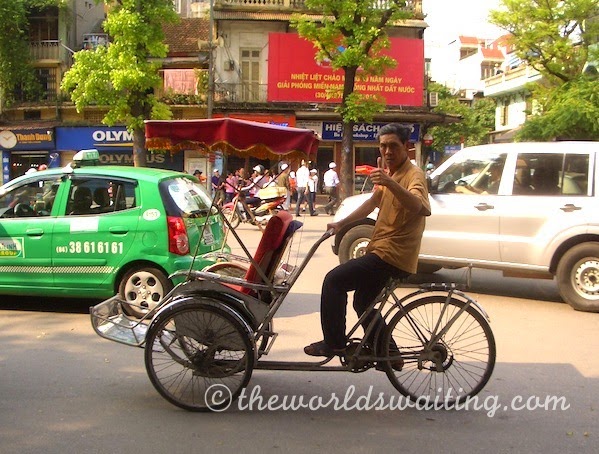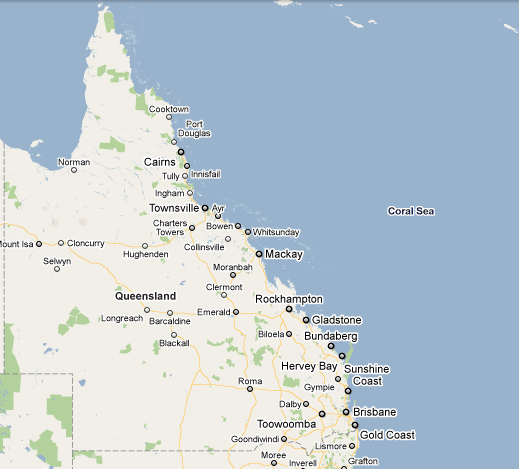
Be scam-wise in Vietnam: How to avoid common scams
Vietnam is a beautiful country full of kind and generous people, but it also has a reputation for its many hustles and travellers often report feeling like they were treated as a walking ATM during their time there. However, if you go with a good understanding of the many tricks you might encounter, you will be well prepared to play the game – you may even enjoy it! Here’s a list of the most common tricks in Vietnam.
Higher prices for foreigners
While it is hard to feel good about yourself when bargaining hard with someone for whom your dollars would undoubtably mean significantly more, it is also far from satisfying to pay double or triple what the person before you just paid. Foreigners are widely perceived as (and usually are) comparatively, richer. Of course, bargaining is not standard in western culture, so it makes many visitors feel uncomfortable or uncharitable. The feeling is understandable, but should be put to one side when you know the practice is standard locally. Expect to pay more than locals, but don’t be shy about bargaining. Foreigners are often quoted prices that are significantly higher than the prices asked of locals. You are unlikely to pay the local price but, generally speaking, if you pay about 50 per cent of the initially suggested price, you and the seller are doing well. I think the key is to treat it as a challenge. You’ll have a great time, so long as you go prepared to play the game.
Basket ladies
Beware of the women roaming the streets who carry two baskets suspended from a long stick over one shoulder! The baskets often contain fruit or bread, and the giveaway sign is that they are usually not very full. The women are used to foreigners wanting to take photos of them and will often insist you hold their baskets and wear their hat for a photo, then charge you $3-4 for the privilege. This is all very well if you want to take a photo like that (or want to buy some of what they’re carrying). It can be quite fun. However, if you are not interested it can be annoying. The best way to avoid this happening is a polite but firm “No, thankyou.”

Shoe repair men
Keep an eye out for the young men and boys who point out a fault with your shoes. While your first instinct tells you this kind stranger is pointing out a hazard you hadn’t yet noticed they are often, in fact, keen to repair your shoes above and beyond what you might agree actually needs doing (e.g. polishing flipflops!) If you do need some shoe repairs, be very clear about the price and don’t let them make extra repairs without renegotiating the price or they will increase the price quoted when the work is done.
Street touts
You can buy almost anything on the streets of Vietnam. Be careful doing so however, as the prices offered by street touts are often inflated. Items such as maps, postcards and souvenirs are generally cheaper from shops. Street touts can also be very persistent and difficult to shake off. They often grab at you too, so if someone grabbing your fleshy bits and crying “You can buy!” is not going to encourage you to make a purchase, I suggest you give them a wide berth.
Taxis and Cyclos
A lot of illegal taxis operate in Vietnam and dodgy meters and claims of “No English,” are common. For safety reasons, travellers should only ever use official taxis. When negotiating with the driver, it is important to confirm if the fare is based on the meter or pre-agreed. Having a rough idea of the path to your destination, if possible, is a good way to avoid metered drivers (and cyclos) taking longer than necessary routes, but only if you speak up. If it is not a metered fare, make sure you agree the price before getting into the taxi. Do not feel pressured by surrounding traffic. It is important to agree the fare before getting in, not only because by then you are committed, but you also have better bargaining power if you can still walk away. Try to also keep a stash of small money available, to avoid the popular claim of “No change.”
Price changes in shops
Shopkeepers seem to determine prices completely on a whim. Don’t be surprised if you are quoted different prices for the same item. I once returned to a Hanoi shop I had visited half an hour earlier to buy a souvenir, only to find the shopkeeper, smelling a sale, had increased the price. He had an impressive poker face. We bargained and settled on the original price. Lesson learned: if you want something, decide quickly, bargain, and buy it on the first visit!
Swapped purchases
When you agree a price and purchase something, if it is being wrapped, try to stay within sight of it. A common trick in Vietnam is to bargain over a displayed item and then wrap a similar item of inferior quality for the purchaser to take home. Of course, once the trick is discovered it is usually too late to do anything about it.
Pirated goods
Fake copies of DVDs, CDs and some electronic items are widely available in Vietnam. They are usually poor quality, if they work at all.
Bargain books
Children often sell books and postcards from cardboard boxes. When books are for sale at a low price, especially if they are wrapped in cellophane, they are usually poorly made photocopies, with wonky pages and sentences missing off the bottom of pages. If you can’t open a book to have a look at it, it is most likely one of these copies. Personally, I can think of nothing more irritating than missing a cliffhanger moment in a novel!
“No change”
From cheeky children to sneaky taxi drivers, “No change” is a common trick to get a few more Dong out of foreigners. To avoid this situation, make sure you always have small denominations of money on you.
Which currency?
Price lists are generally uncommon, but if you see a written price somewhere like a restaurant menu for example, always ensure you know which currency it refers to. Prices are commonly quoted in US dollars, or in VND (Vietnamese Dong). There is an enormous difference in the two currencies, so make sure you know which you are committing to pay.
Beggars and children
This one really tugs at the heartstrings. Sadly, as in many places, children and the disabled are often used as bait for philanthropic foreigners. Those begging rarely get to keep much of the money they collect so if you want to help the individuals, the best way to do so is to give them food, rather than money.
Vietnam Air schedule
While this isn’t exactly a scam, it is misleading that Vietnam Airlines offers very frequent flights (as many as every two hours on main routes), only to later economise by combining flights. This means flights are often cancelled and travellers delayed. There is no way to avoid this happening, but you can avoid disasters such as missed connections by ensuring you always allow plenty of time to make your next flight.
Should I still go?
Absolutely! This list may make you think twice about visiting but it absolutely shouldn’t. I have compiled this list based on my experiences simply to better inform visitors, and prepare them for the adventure ahead. Vietnam is a beautiful country of incredible landscapes, entertaining people-watching and fantastic food. I consider the many hustles of Hanoi and tricks of Saigon as a fun challenge, and negotiating them part of the experience. While I certainly understand from first-hand experience the ‘What am I, an ATM?’ feeling, the majority of Vietnamese people I encountered were friendly, kind, considerate, honest and helpful. I hope that by sharing this list of cunning tricks other travellers will be able to avoid falling victim to scams and will instead focus on the positive experiences they have in Vietnam instead.
What are your experiences of tricks and scams in Vietnam? Please share them in the comments below.




